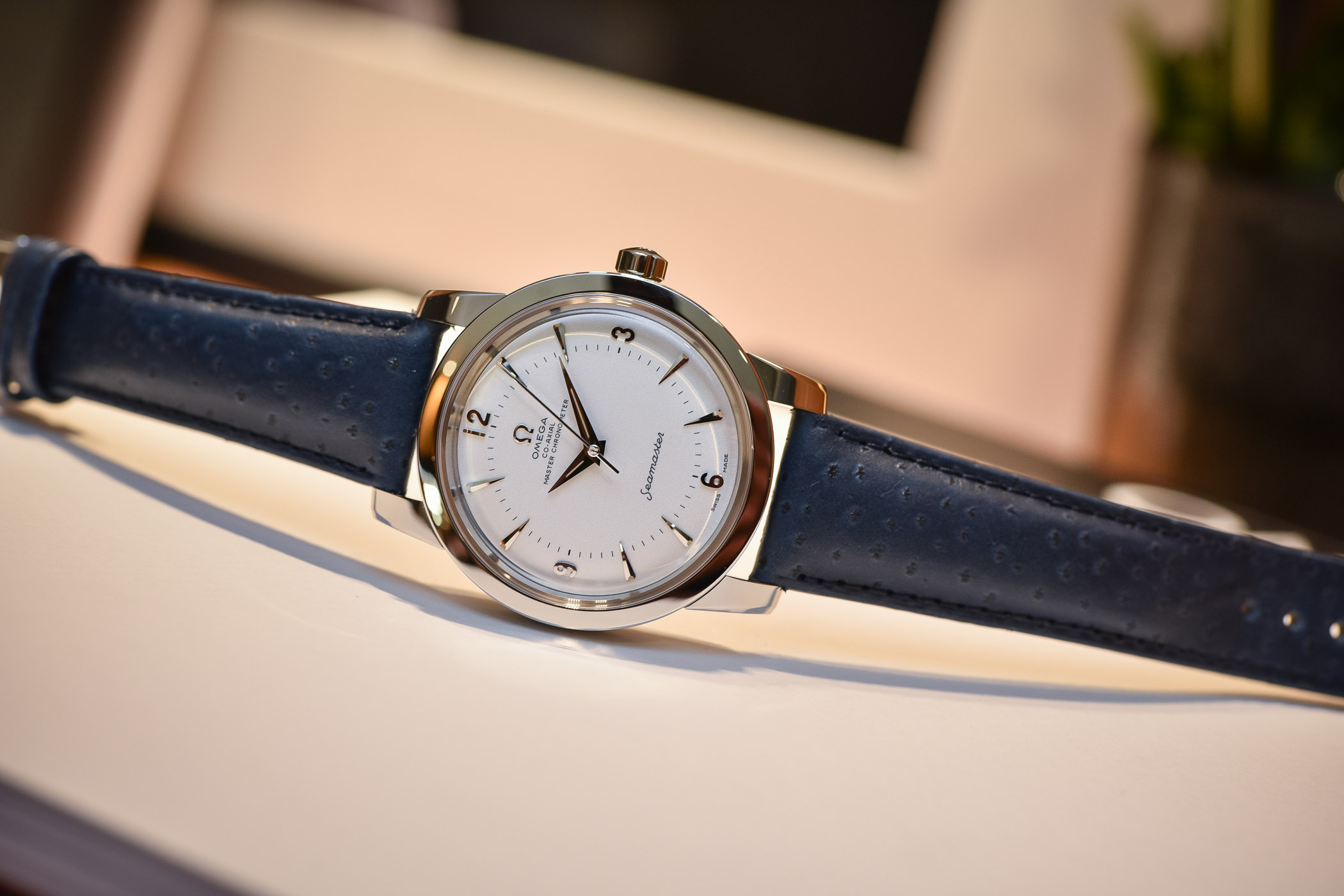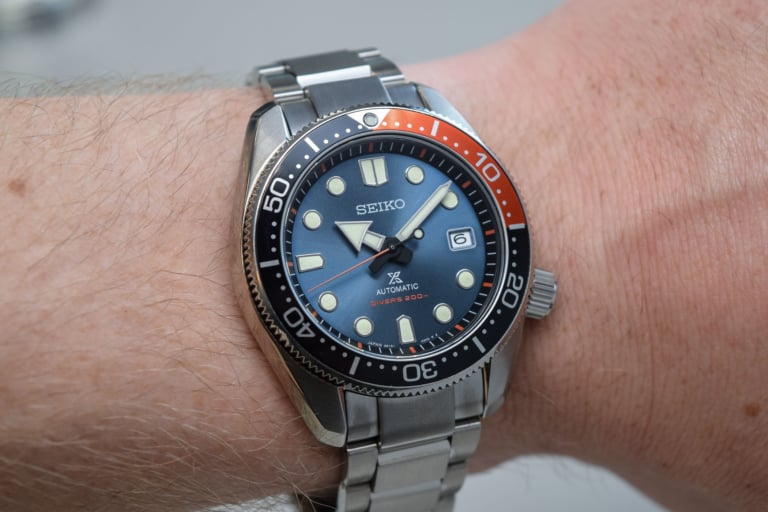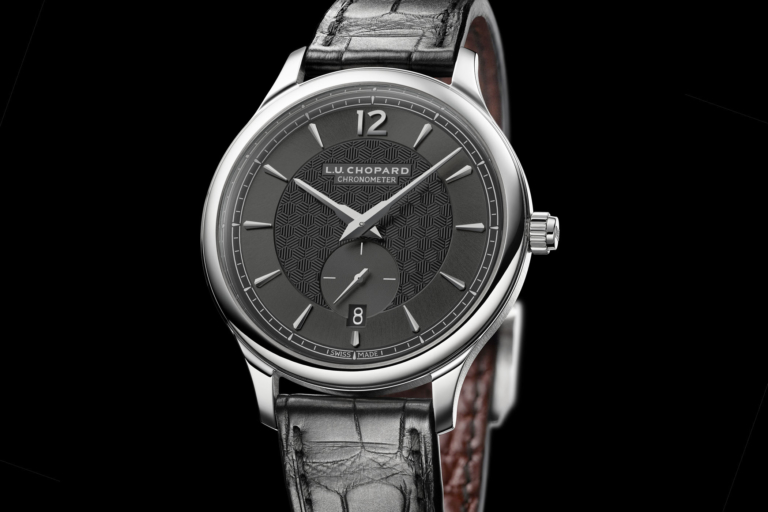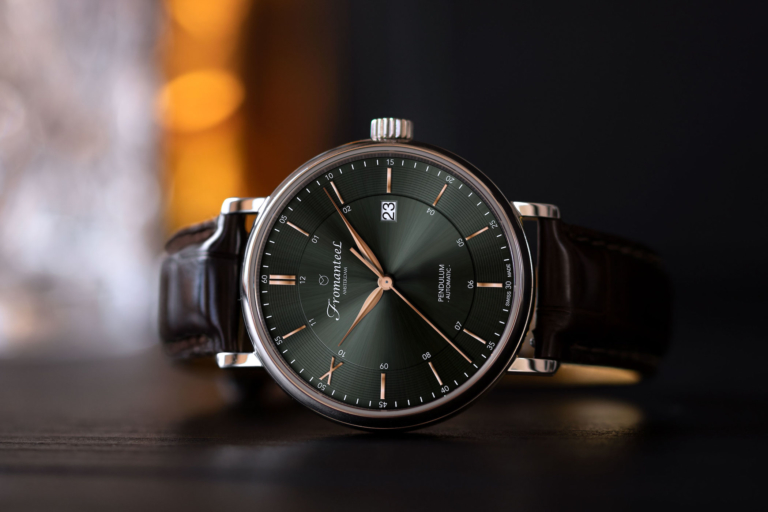The Cool, Vintage-Inspired Omega Seamaster 1948 Limited Editions 70th Anniversary
Omega’s veteran 1948 Seamaster parades its vintage credentials, a 38mm case size and a Master Chronometer movement.

What’s old is new again, and Omega’s Seamaster 1948 gets a second lease of life in 2018 with two limited edition models that capture the retro spirit of the originals combined with turbo-charged 21st-century engines in the form of Co-Axial Master Chronometer movements. Seventy years down the line, the Seamaster 1948 reappears to seduce a new generation of buyers with two very attractive models, one with central seconds and the other with a small seconds sub-dial. With their elegant 38mm cases, monochromatic silver dials, Spartan aesthetics and non-existent date window, the Seamaster 1948 models were definitely one of our favourites at Baselworld 2018.
Brothers in arms
Launched in 1948 to coincide with Omega’s centenary, the Seamaster is Omega’s most veteran line in the current collection and the granddaddy of Omega’s powerful family of diving instruments -including the Seamaster Diver 300m Bond watch. As the direct descendant of Omega’s utilitarian wristwatches supplied in bulk to the British Ministry of Defence during WWII, the Seamaster was the civilian answer to the robust models designed to resist the most gruelling conditions imaginable.
Print adverts of the day for the automatic Seamaster appealed to “men of action” and trumpeted the fact that “26,000 pilots” (RAF) had already tried and tested the watch before them. The very first Seamasters, with either small or centre seconds, were fitted with O-ring gaskets for increased water-resistance (to 60m). Spruced up for civilian life, the first Seamaster was the ideal combination of a rugged, reliable sports companion handsome enough to be worn to the office with a suit.
A small case does not mean puny
With a diameter of 38mm, which is relatively small for today’s standards but much larger than the original, the Seamaster 1948 models are a dream come true for purists who have turned their backs on the trend for hockey puck wristwatch sizes. But do not be fooled into thinking that the small diameter translates into a lightweight, delicate watch. On the contrary, the thick polished bezel, the solid straight lugs and the height of the case (11.20mm for the central seconds model and 11.65mm for the small seconds), endow the watch with a reassuring, substantial presence.
A blast from the past
I’m trying to recall how many monochromatic watch dials I saw this year at Baselworld, and I have to admit that not too many springs to mind. The silvery opaline dial of the Seamaster 1948 Limited Edition watches really sets them apart from the crowd giving them a distinguished, elegant appeal that is in keeping with their vintage mission. A bit like an upside-down pie pan, the domed dial is another fundamental blast from the past adding depth and dimension to the scenery. With no date window on the premises, ‘datewindowphobes’ can enjoy an unblemished view of the wonderfully sober dial.
In all fairness, the dials are not entirely monochromatic and the minutes’ tracks, small seconds counter and inscriptions are black and there is even a touch of colour on the central seconds model. Unlike its ancestor with luminous radium dots on the hour markers, the Central Second model features touches of SuperLumiNova on the tips of the white gold hour markers and the Dauphine-style hour and minute hands that glow blue in the dark.
However, if I had to choose between the two watches, the Small Seconds model gets my vote. The harmonious silver-on-silver tonality of the dial, the plump vintage-style numerals at 12, 3 and 9 o’clock, the arrow-shaped hour markers that curve to meet the slope of the dial, the elongated leaf-style minute hand that reaches all the way to the minute track, and the pleasing rotundity of the case endow this model with a truly vintage spirit that still resonates today.
Warhorse engines
It’s one thing to have a retro face, but quite another to have a retro movement. Bringing the watch squarely into the 21st century, Omega has kitted out both models with its proprietary Master Chronometer movements. Officially certified by METAS, automatic calibre 8804 (Small Seconds) and calibre 8806 (Central Seconds) are resistant to magnetic fields of 15,000 Gauss, beat at 3.5Hz and are equipped with silicon balance springs and Omega’s famous co-axial escapement. The case back with a Naiad Lock has a sapphire crystal window to view the movement with its rhodium-plated rotor and bridges and Geneva wave decoration.
The glass is laser engraved with a Chris-Craft boat and a Gloster Meteor aircraft, a tribute to the aviators and mariners who once relied on Omega’s watches. Like its ancestor, the watch is water-resistant to 60 metres. I feel that this is a slightly anachronistic choice given the state-of-the-art movement in its interior and its historical fame as a water-resistant timepiece.
Both watches come with blue-grey leather straps with a vintage Omega logo on the buckle and a presentation box with an additional leather strap and a grey NATO strap. Each model is limited to 1,948 pieces and priced at CHF 5,700 (central seconds, 511.13.38.20.02.001) and CHF 6,200 (small seconds, 511.12.38.20.02.001). More details on omegawatches.com.













7 responses
Beautiful … IMO Omega did a great job in resurrecting the design language of the classic Seamaster. To my eyes the version with central seconds is more interesting, due its unique dial layout, but both versions are great. If I could change something, I’d do away with the laser engraving on the rear crystal, and give it a contemporary water resistance …
Best,
Markus
The difference between a ’40s 60m-WR watch and this modern Omega is that this one can actually dive to 60m… Which is sufficient for every use I can think of (someone going deeper than 60m would use a diving computer and a real dive watch with rotating bezel as backup anyway).
I’ve seen numerous steel cased dress watches in the recent years, this iteration of Seamaster being the best among them in terms of aesthetics and value.
Nice balanced and cohesive look (the way things used to be done). HOWEVER, what irks me about Omega, is the fact that their steel jobs are absolute scratch magnets; and I am simply not into the jaded look.
Beautiful both of them, but the edition with the central seconds, has ridiculously small hour and minute hands.
@Orfeas… exactly as the original from 1948
Addictive watches.
Omega is doing his best from Biber to now. Vintages are great but I think this ones are highly collectable.
Excellent calibers for lovely watches.
Best,
Doc.